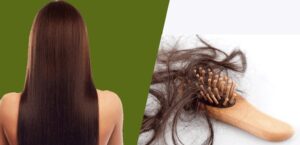Table of Contents
Effective Ways to Address Hair Loss and Promote Natural Hair Growth
For most people, a full head of hair symbolizes health and confidence. Hair loss, however, is a common problem affecting both men and women. According to the American Hair Loss Association, around 40% of hair loss sufferers in America are women, although the issue is more socially accepted when it occurs in men. But what are the real causes of hair loss, and how can they be treated naturally?

Effective Ways to Address Hair Loss and Promote Natural Hair Growth
Understanding Hair Loss: Causes and Triggers
Hair loss can stem from multiple factors, including genetics, hormonal imbalances, medical conditions, and certain medications. The medical term for hair loss is alopecia, and there are two primary types:
- Alopecia Areata: This occurs when the body’s immune system mistakenly attacks hair follicles, leading to hair loss.
- Androgenetic Alopecia: Known as male or female pattern baldness, this condition is inherited and results in gradual hair thinning and eventual hair loss.
While some people opt for surgical solutions or commercial hair loss products, many of these treatments address only the symptoms and not the underlying causes. For long-term hair health, it is essential to understand the root causes and adopt holistic, natural approaches where possible.
Hormonal Changes and Hair Loss
Hormones play a crucial role in hair growth. For instance, hormonal imbalances during pregnancy, menopause, and thyroid problems can lead to temporary hair loss. Both men and women produce androgens such as testosterone, which can impact hair growth when unbalanced. In some cases, high levels of dihydrotestosterone (DHT), an androgen, can shrink hair follicles and hinder hair production, especially in men.
Natural Remedies for Hair Loss
Natural treatments, including dietary changes, stress management, and essential oils, can help slow down or even reverse hair loss. Here are some effective methods:
Diet and Nutrition
A nutrient-rich diet can greatly improve hair health. Here are some recommended foods:
- Organic Foods: Free from chemicals that disrupt endocrine functions and can contribute to hair loss.
- Pumpkin Seeds: Rich in zinc, which is essential for hair health and helps address hypothyroidism-related hair loss.
- Omega-3 Rich Fish: Foods like salmon support hair thickening and reduce inflammation.
On the other hand, foods such as sugar, trans fats, and processed foods should be avoided, as they contribute to hormone imbalance and inflammation, which can exacerbate hair loss.
Essential Oils for Hair Growth
Essential oils like rosemary and peppermint have been shown to promote hair growth. Studies indicate that rosemary oil may be as effective as minoxidil, a common hair loss treatment. For best results, mix rosemary and peppermint oils with a carrier oil (e.g., coconut oil) and massage into the scalp twice daily.
Supplements for Hair Health
In addition to a healthy diet, supplements can provide the necessary nutrients for hair growth. Recommended supplements include:
- Bone Broth Protein: High in collagen, glucosamine, and amino acids, bone broth is excellent for hair health.
- Saw Palmetto: Known for blocking DHT, saw palmetto is an effective natural remedy for preventing hair loss.
- B-Complex Vitamins: Biotin and pantothenic acid (B5) support hair thickening and stress management.
Natural vs. Conventional Hair Loss Treatments
Conventional hair loss treatments include topical minoxidil, oral finasteride, and hair transplants. These options can be effective but often come with side effects, including scalp irritation, sexual dysfunction, or dependency on continued use. Additionally, these treatments do not target the root causes of hair loss and are often expensive.
Conversely, natural methods provide a safer, holistic approach to hair health. Lifestyle changes such as a balanced diet, regular exercise, and stress management can positively affect hair health without adverse effects. Using essential oils and supplements may also be a gentler approach to treating hair loss.
Male vs. Female Hair Loss: Key Differences
While male hair loss often follows a receding hairline pattern, female hair loss is usually characterized by thinning hair around the top of the head. Women are more likely to experience hair loss due to hormonal changes, especially during pregnancy and menopause. Studies have shown that men with premature baldness may have a similar hormonal profile to women with polycystic ovary syndrome (PCOS), indicating that hormone balance plays a significant role in hair health for both genders.
For more on how hormonal imbalances affect health, visit this article on the National Center for Biotechnology Information (NCBI).
Best Practices for Healthy Hair Maintenance
Beyond remedies, maintaining hair health also involves lifestyle practices that promote overall well-being:
Stress Reduction Techniques
Stress is a known contributor to hair loss. Techniques like meditation, yoga, and deep-breathing exercises can help manage stress levels, thereby supporting hair health. Chronic stress increases cortisol production, which can disrupt hormonal balance and affect hair growth.
Scalp Care
Maintaining a healthy scalp is vital for hair growth. Regular scalp massages stimulate blood flow to hair follicles, encouraging growth. Use gentle, natural shampoos to avoid irritation or further hair damage.
Conclusion
Hair loss can be distressing, but understanding the underlying causes and addressing them with natural, holistic methods can yield long-lasting results. From dietary changes to stress management, there are many ways to support hair health without relying solely on conventional treatments. For those dealing with more severe hair loss, consulting a healthcare provider to explore underlying health issues is essential.
Adopting a comprehensive approach that includes proper nutrition, regular scalp care, and essential oils can make a significant difference. For additional information on natural health remedies, check out this resource from the Mayo Clinic.